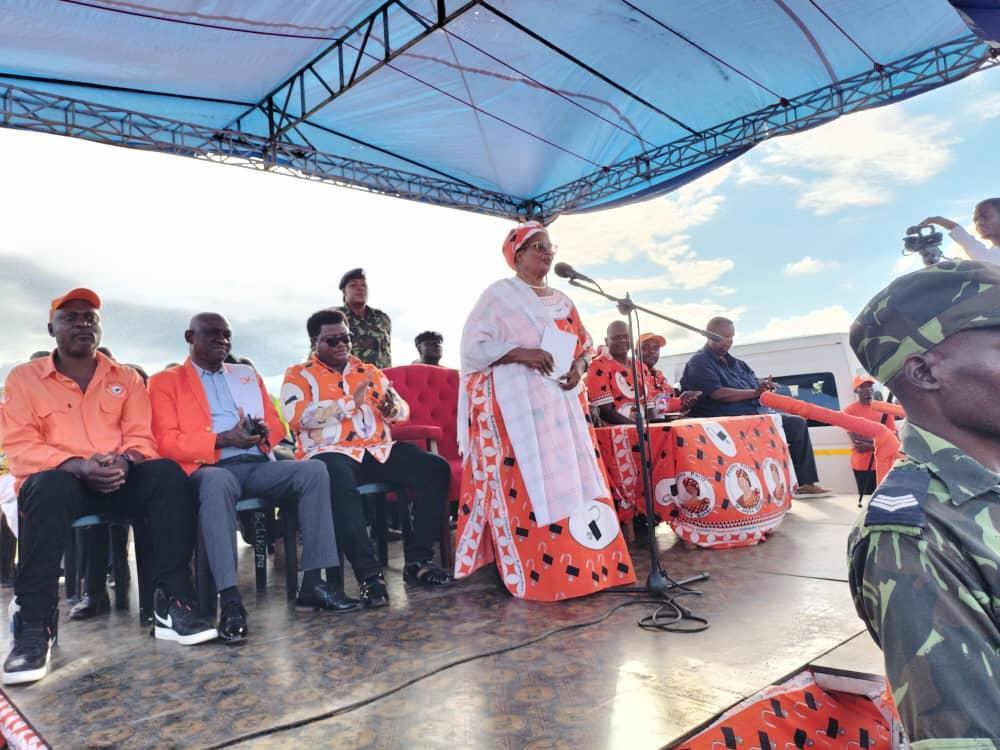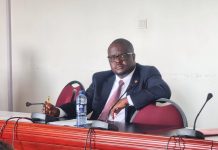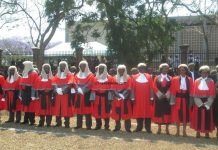Africa-Press – Malawi. As Malawi prepares for the September 2025 presidential election, one question demands renewed attention: Is the country finally ready to elect a female president?
Despite having had a female president once before— Joyce Banda, who served from 2012 to 2014 following the death of President Bingu wa Mutharika—Malawi has never elected a woman to the presidency through the ballot box.
Banda’s presidency was a historic milestone, making her the first woman to hold the highest office in Malawi and only the second female head of state in Africa at the time, after Liberia’s Ellen Johnson Sirleaf.
However, her leadership was cut short in the 2014 elections when she lost to Peter Mutharika, signalling what many considered a premature rejection of female leadership by the electorate.
Since then, no female candidate has come close to securing significant national support for the presidency, despite a growing number of women participating in politics at various levels.
Women continue to face systemic and cultural barriers that prevent them from ascending to top leadership positions in the country.
One of the main barriers is patriarchal societal norms that continue to dominate Malawian culture and politics.
Many voters still associate political leadership with masculinity, and there is a lingering perception that women lack the toughness or strategic capability to handle high office.
Even within political parties, women are often relegated to supportive or ceremonial roles, rather than being nurtured and positioned as viable presidential candidates.
Financial constraints also play a major role in limiting women’s political participation at the national level.
Running for office in Malawi requires substantial financial resources for campaign logistics, mobilisation, media presence, and constituency outreach.
Unfortunately, women in Malawi are economically disadvantaged compared to their male counterparts, with fewer business ownership opportunities, limited access to loans, and reduced capital control, making it harder for them to run competitive campaigns.
Another barrier is media portrayal.
Women politicians are often subjected to personal scrutiny and gender-based criticism in the media, with the focus frequently shifting to their marital status, appearance, or demeanour rather than their policies and vision.
This contributes to public scepticism about their capabilities and discourages aspiring female leaders from stepping forward.
Yet, there is no shortage of competent and visionary women in Malawi who could lead the country.
Figures like Dr. Joyce Banda, Dr. Patricia Kaliati, Vera Kamtukule, and Cecilia Chazama have held high-level cabinet or leadership roles and have demonstrated the intellectual and administrative capacity to manage national affairs.
Moreover, data from various development institutions, including the United Nations and World Bank, suggest that countries with greater gender equality in leadership tend to perform better in governance, health, education, and economic development.
In local politics, more women have been elected as Members of Parliament and councillors in the last two general elections, indicating a slow but positive shift in public attitudes toward female leadership.
The 2019 and 2020 elections saw an increase in the number of female candidates and eventual winners, although the numbers still fall far short of gender parity.
Civil society organisations and gender advocacy groups have also played a vital role in promoting women’s political participation.
Groups like Women’s Legal Resources Centre (WOLREC), NGO Gender Coordination Network (NGO-GCN), and 50:50 Campaign have supported women aspirants with training, funding, and mentorship.
However, the momentum generated by these initiatives still needs greater backing from political parties and voters alike to translate into national leadership.
The 2025 elections present another chance for Malawi to move beyond symbolic female participation and seriously consider electing a woman president based on merit, not gender.
This would require political parties to prioritise inclusivity in their nomination processes, the media to exercise responsible and unbiased coverage, and the electorate to judge candidates based on leadership qualities and policy platforms.
Malawi must also confront the double standards and implicit biases that continue to undermine women’s chances of being seen as legitimate presidential contenders.
Real progress will come when a woman runs not as a token, but as a frontrunner—supported by her vision, record, and competence.
In the end, the question is not whether women are ready to lead; the real question is whether Malawi is ready to embrace leadership that reflects its entire population—men and women alike.
Only then will democracy truly serve all Malawians.
For More News And Analysis About Malawi Follow Africa-Press






